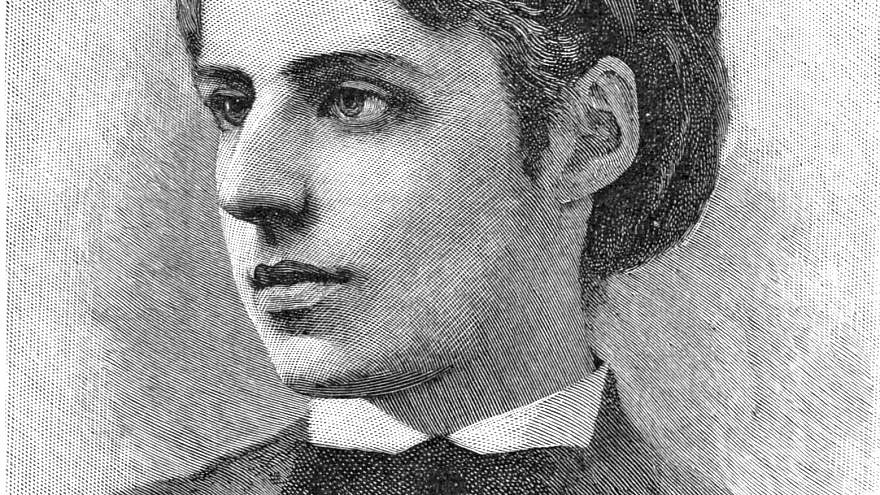Today, Emma Lazarus is best known as the writer of the words engraved on the pedestal of New York’s famed Statue of Liberty.
However, in her tragically short life (she died at the age of 38 in 1887), Lazarus accomplished so much more than penning “The New Colossus.” In addition to being a member of America’s literary elite and receiving praise from the top critics and authors of the day, Lazarus fought tirelessly for the welfare of Jewish immigrants and was one of the earliest American public advocates of Zionism.
Lazarus was born in New York City in 1849 to Moses and Esther Nathan. Her family traced their ancestry to the early Sephardic community in America and had become quite prosperous. While other branches of the family were proudly and openly involved in religious Jewish life (her grandfather and uncle both served as parnas of Congregation Shearith Israel, while another uncle was the chazzan, or cantor), Moses wanted to assimilate into elite American society and became largely successful.
Lazarus began to write from an early age, receiving accolades from famous authors of the day, such as Ralph Waldo Emerson, who became her friend and mentor.
Although she received virtually no Jewish education, early in her career she showed interest in the theme of Jewish national revival. One clear example is her poem “In the Jewish Synagogue at Newport,” a reference to Henry Wadsworth Longfellow’s “The Jewish Cemetery at Newport.” While Longfellow declared that “dead nations never rise again,” Lazarus concluded “the sacred shrine is holy yet.”
With the explosion of European anti-Semitism leading to a massive influx of Jewish immigrants, Lazarus felt a call to action. She responded by personally assisting and organizing institutions geared toward helping Jewish immigrants.
At the same time, she began to explore her Jewish identity, turning again and again to Jewish figures and subjects in her writings. She also began to call for a return of the Jews to the land of Israel. In her “Epistle to the Hebrews,” (1882) Lazarus urged Eastern European Jews to emigrate to Palestine. A powerful example of her proto-Zionism (the term was not even coined until 1891) is her poem “The New Ezekiel.” Recasting the prophet’s vision of the dry bones from a modern perspective, Lazarus proclaims that the bones, which have been dried by “twenty scorching centuries of wrong” would yet live, with God stating “and I shall place you living in your own land.”
A visionary ahead of her time, Emma Lazarus is an incredible example of dedication to Jewish peoplehood and the ideal of Jewish national rebirth in the land of Israel.


























